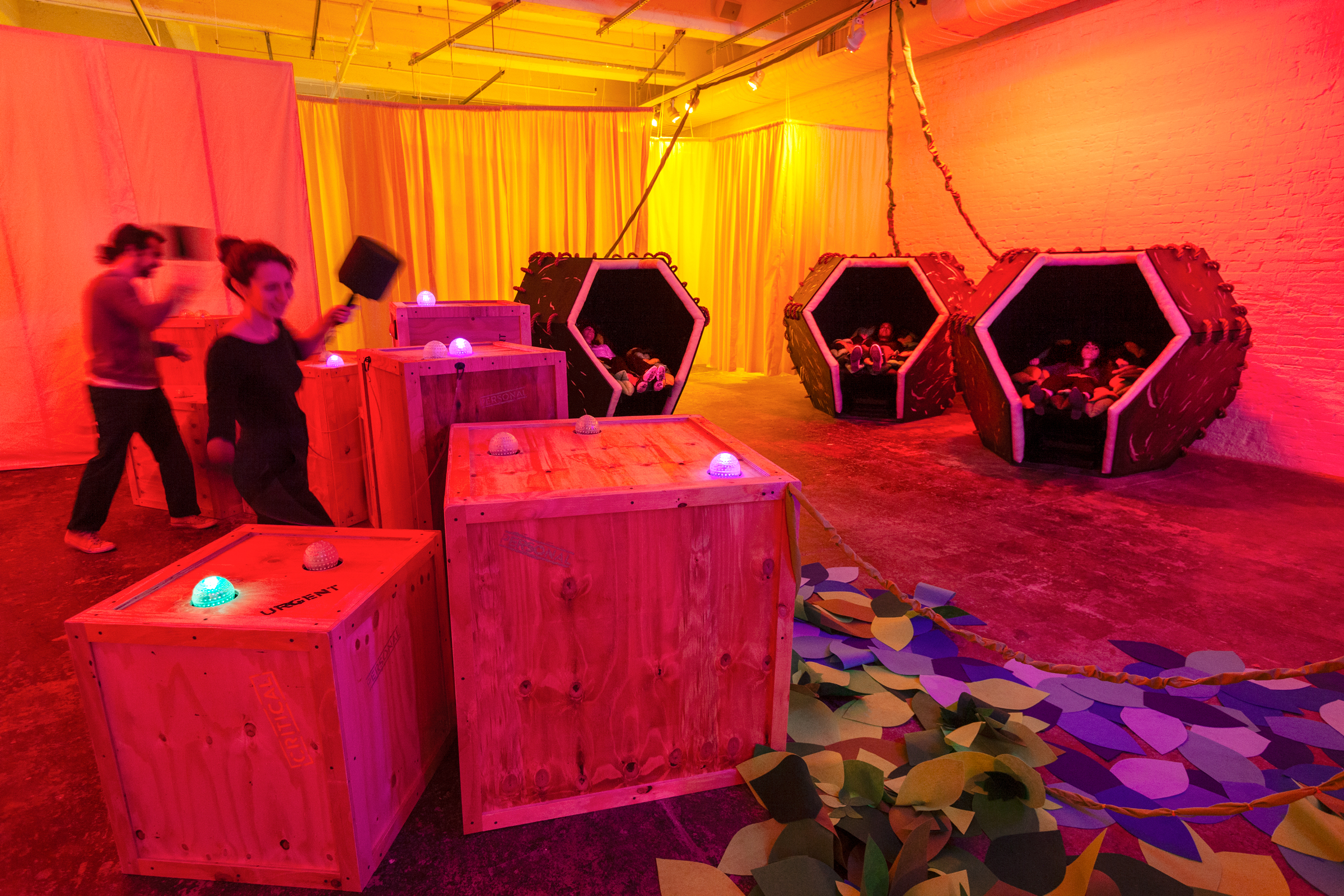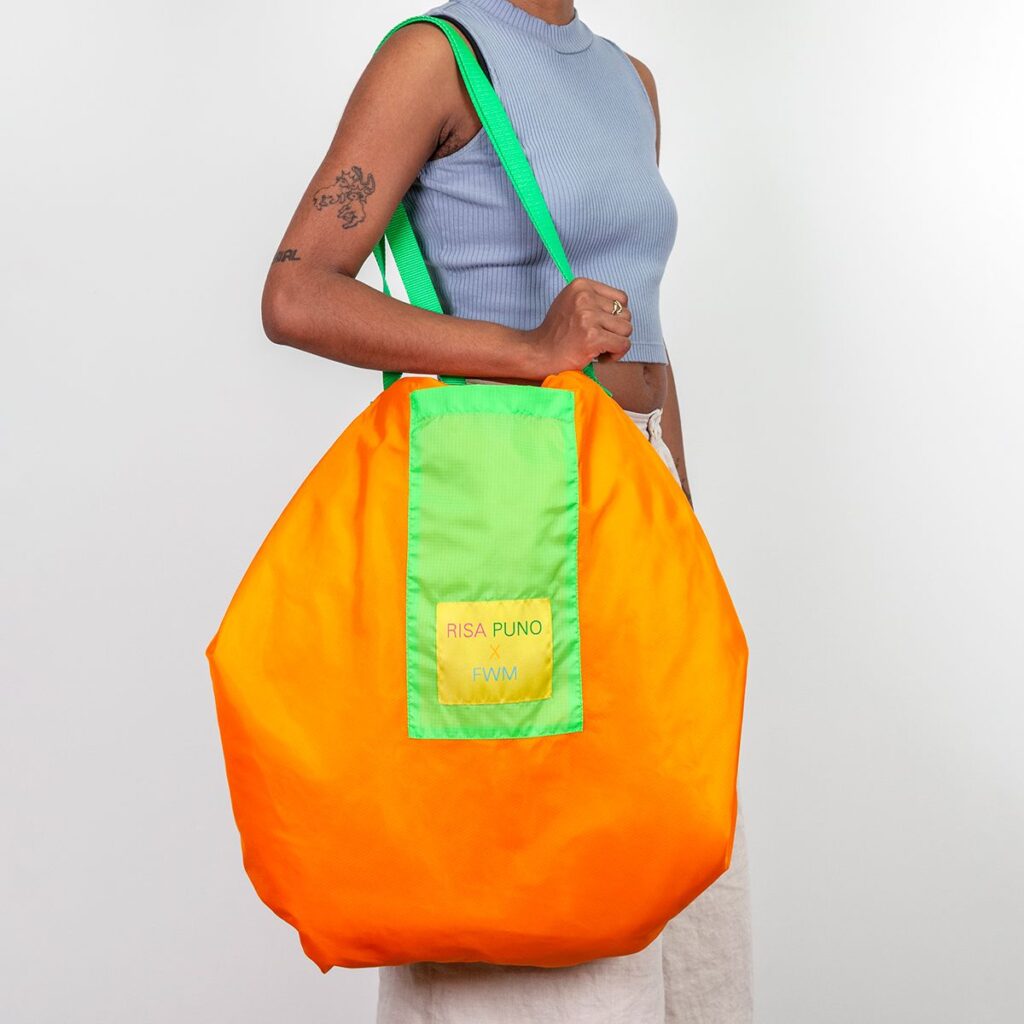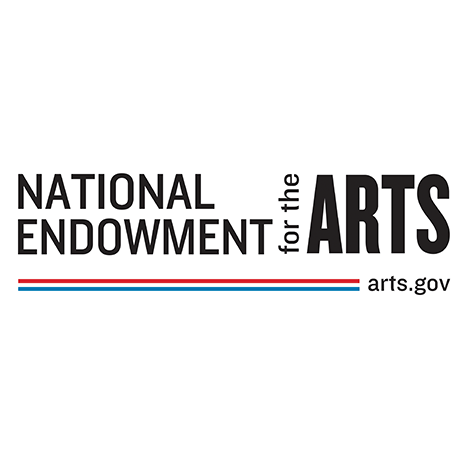Would you rather work to care for others, or have others work to care for you?
Risa Puno’s first museum solo exhibition takes the form of an interactive installation that explores the complex social relationships inherent in receiving and providing care. Taking its name from the answer to a New York Times crossword clue— “Many-person act of support or affection”—Group Hug uses the language of games to weave together themes of caregiving, cultural identity, and familial dynamics. The result of a two-year residency and created in collaboration with the FWM Studio, the exhibition invites the public to engage in gameplay with unexpected incentives and outcomes.
Upon entering the exhibition, visitors are presented with a choice of two paths: ‘Care For’ or ‘Cared For’. This implied question about what someone needs or wants, or perhaps just the role that they habitually fill, is the beginning of an immersive journey that blends elements of games and collaboration. Depending on their chosen path, visitors will either play an exhilarating multi-person game that evokes feelings of urgency, camaraderie, and either triumph or disappointment, or relax among green felted leaves in geometric pods that resemble giant coconut shells. For the artist, the dynamic interplay between these experiences is a manifestation of the work and effort that goes into caring for one another.
Inspired by recent events from Puno’s life that caused family members of varying generations to face new complexities and challenges related to giving and receiving care, this candy-colored installation represents Puno’s unique halo halo of experiences (a Tagalog term meaning ‘mix mix’) and is reflective of her multicultural background. Central to Group Hug and much of Puno’s work is the pre-colonial Philippine concept of kapwa, which represents a deeply shared identity and the belief that we have a moral imperative to care for others as we do ourselves. Group Hug offers a space for contemplation, interaction, and playful exploration about the impact of our choices on our collective well-being.


 Download the Press Release
Download the Press Release
